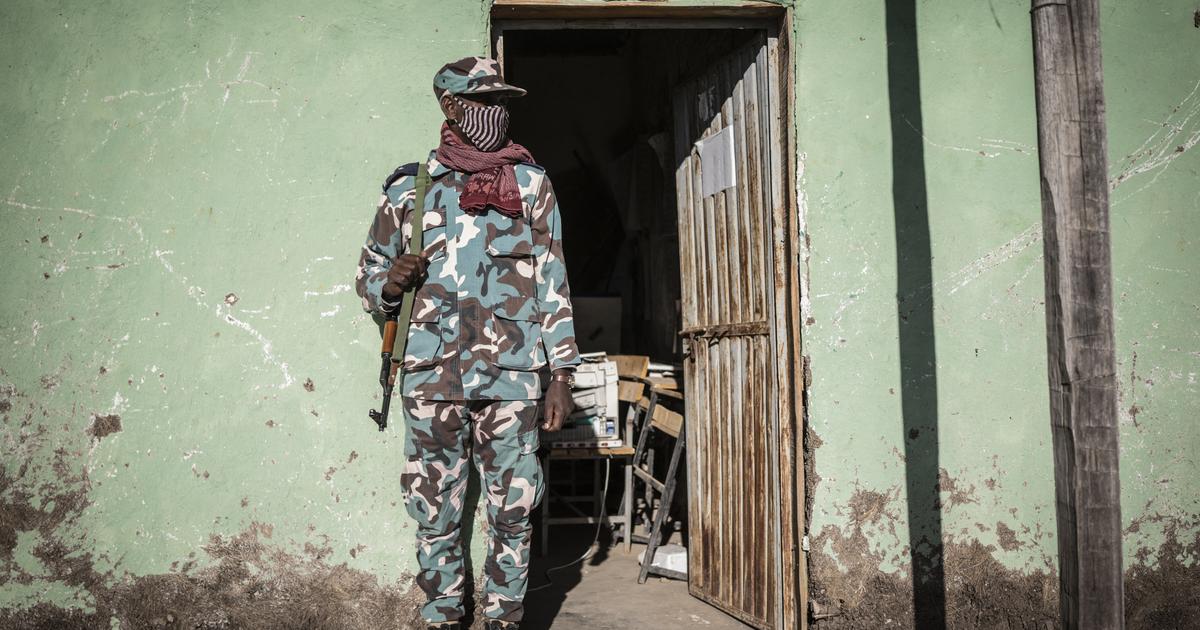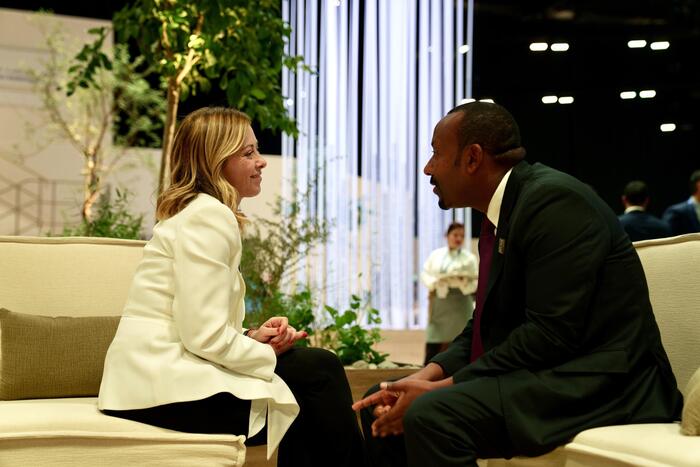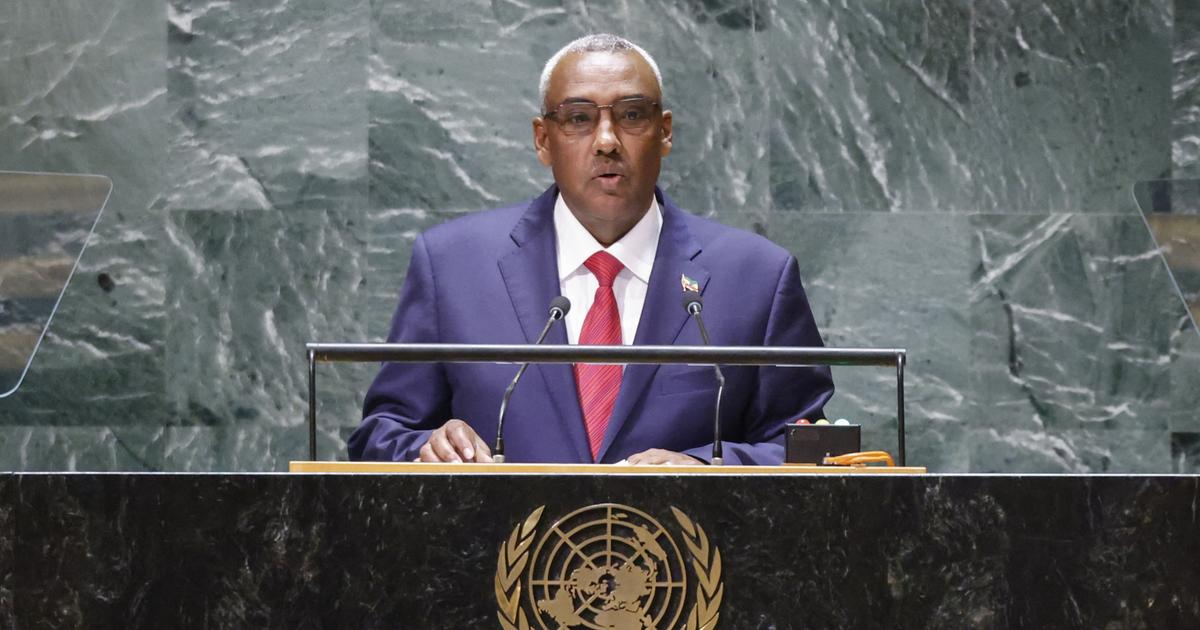Ethiopia's Prime Minister and 2019 Nobel Peace Prize Laureate Abiy Ahmed.
/ Europa Press
Ethiopian Prime Minister Abiy Ahmed, who was elected a Nobel Peace Prize winner last year, walks a tightrope.
Since coming to power on April 2, 2018, he has not only survived an attack and attempted coup, but has also had to grapple with deep ethnic divisions that threaten to blow up his ambitious reform plan. and even the territorial integrity of your country.
Inter-community violence has skyrocketed in the last three months following the murder in June of a well-known activist and singer from the Oro ethnic group, while the Tigray region, the northernmost region of Ethiopia, is in open rebellion.
The government's repressive response places Ahmed at a difficult crossroads.
This Thursday, the Police of the Oromia region (the most populated in the country) arrested 503 people and seized numerous pistols and hand grenades in the days prior to the great Irreechaque festival that was held this weekend in the capital, Addis Ababa, and in the city of Bishoftu.
Police sources assured the state network Fana Broadcasting that these weapons were going to be used to sow chaos during this meeting, in which the Oromo people (the largest ethnic group in the country) celebrate the end of the rainy season and the arrival of spring.
The tensions between the different groups that make up Ethiopia are not new, a country of 110 million inhabitants that has become the second most populous in Africa and was built first from the conquest and domination of one over another.
After the fall of the communist Mengistu regime in 1991, on the basis of so-called ethnic federalism, the territory was divided into regions according to the communities that inhabited it.
Since then, community identity has taken a central place in Ethiopia's political life.
For this reason, when Ahmed came to power in 2018, Oromo nationalism, his father's ethnic group and the largest in the country, felt that their time had come.
However, the new prime minister has stood out for trying to transcend these divisions with a project of unity from citizenship and rights.
"We need a sovereign philosophy that arises from the basic Ethiopian character that can solve our problems, that can connect us all," says Ahmed in his book
Medemer,
a word in the
Amhara
language
that can be translated as "unity" and that gives name to a a compendium of ideas that aims to be the prime minister's roadmap, both for the construction of a new Ethiopia and for facing the great global challenges of the 21st century.
Something like
Mandela's
Ubuntu
.
Her first steps at the head of the Government, with the release of political prisoners, the signing of peace with Eritrea, the appointment of women in key positions or her decisive contribution to regional stability (Sudan and South Sudan), earned her the Prize Peace Nobel.
But internally, the task is immense.
The young singer-songwriter Hachalu Hundessa had become the voice of the Oromo people.
His lyrics inflamed for years the feeling of discrimination of this community with respect to others.
On June 29, at 9:30 p.m., Hundessa was getting out of his car in a neighborhood of Addis Ababa when his attacker shot him point-blank in the chest.
He died hours later in the hospital while madness raged on the streets: at least 250 people have died since then, many of them belonging to minority ethnic groups at the hands of exalted Oromos, and some 9,000 have been arrested in a cycle of violence and violence. repression that is not over yet.
Hundessa's confessed murderer is a young man named Tilahun Yami, who claimed to have acted for hire.
However, who was behind the sinister commission is still unknown.
Among those arrested by subsequent events is prominent Oromo opposition leader and leader Jawar Mohamed, a major media owner who went from being one of Abiy Ahmed's great allies to one of his most important detractors.
A few days ago, Mohamed and other Oromo leaders were formally charged with terrorism and incitement to violence for having raised the spirits of members of their community after the murder of Hundessa.
As the Oromo conflict rages in the center, the mountainous Tigray region in the north of the country has decided to go it alone.
In December 2019, the different ethnic-based parties that formed the ruling Ethiopian People's Revolutionary Democratic Front, which had dominated the political scene for 30 years, decided to dissolve into the Prosperity Party (PP), created at the behest of Abyi Ahmed.
However, the Tigray Popular Liberation Front, which controls their region, did not join this initiative.
On September 9, they challenged the central power by holding regional elections that Addis Ababa had decided to postpone due to COVID-19.
Opponents in jail
Precisely the indefinite delay of the general elections scheduled for this year under the argument of the pandemic is another of the factors that underlies the discomfort of the opposition, who perceive in it a new despotic gesture by Abiy Ahmed.
The Ethiopian Human Rights Commission has warned of the notable use of violence, intimidation, mass arrests of opponents and journalists, as well as Internet outages, by the government and law enforcement agencies.
The prime minister's rivals claim that all this paints a scenario of authoritarian drift of the Nobel Peace Prize.
“It will be difficult to hold a successful election with Jawar Mohamed and other opponents in prison.
The credibility of these elections would be greatly affected, especially in Oromia, ”says William Davison, Ethiopia specialist at the International Crisis Group.
“The political situation at the moment is turbulent and volatile.
The federal government is making efforts to restore security with tactics that can be perceived as authoritarian.
There was probably no intention of doing this, but it is difficult for the Ethiopian government to regain control without using the full force of the state, ”he adds.
The escalation of the conflict in Oromia, the clash between Addis Ababa and the dominant party in Tigray and the increase in repression also take place in a terrible economic context caused by instability, the pandemic and its impact on agriculture, which represents a third of the Gross Domestic Product, from the outbreak of the devastating desert locusts.
The International Monetary Fund has lowered the Ethiopian growth forecast for 2020 from 6.2% to 3.2%, with a loss of 1.4 million jobs.

/cloudfront-eu-central-1.images.arcpublishing.com/prisa/KDCGLQUOBNDCDGOSTN7L5YCQOQ.jpg)





